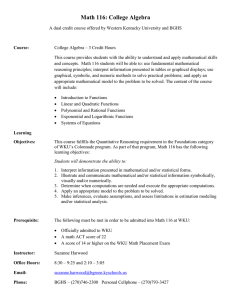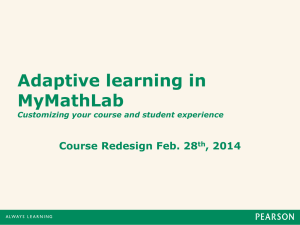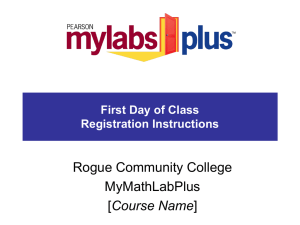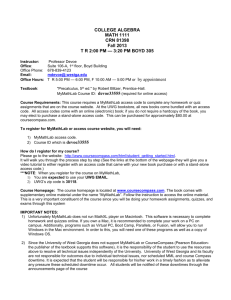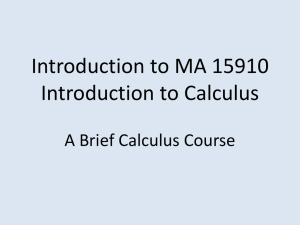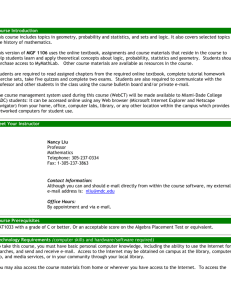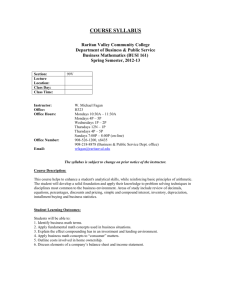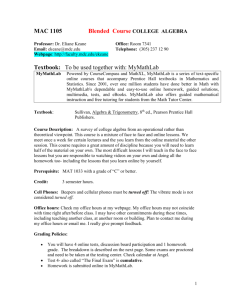MA112ProposalHandout - University of South Alabama
advertisement
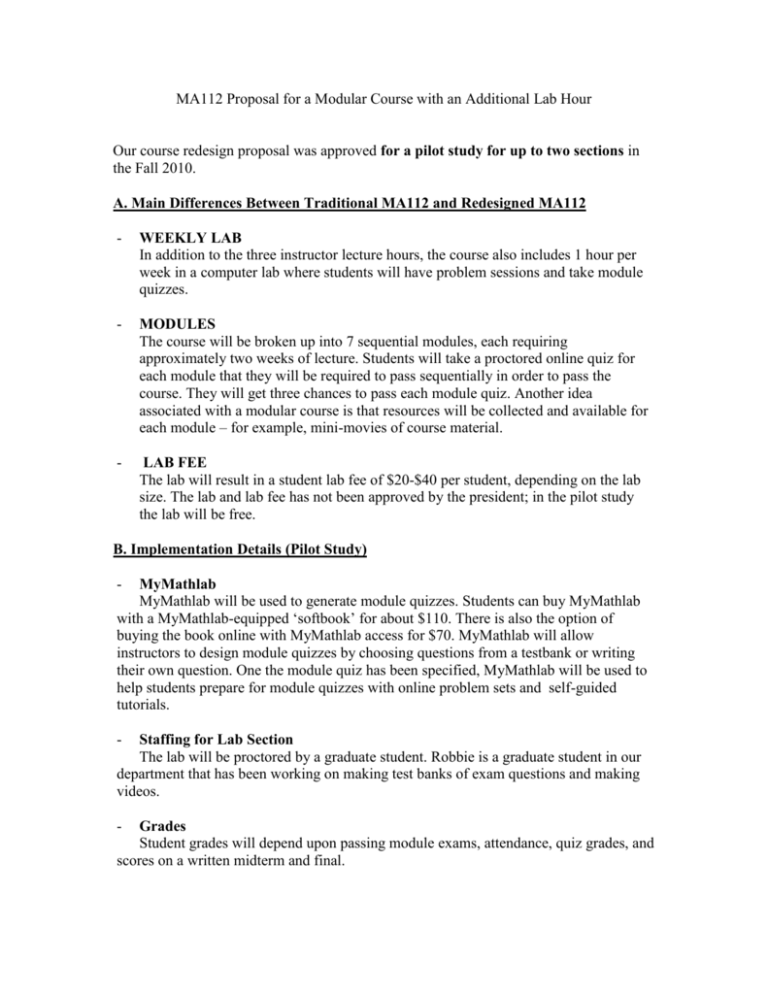
MA112 Proposal for a Modular Course with an Additional Lab Hour Our course redesign proposal was approved for a pilot study for up to two sections in the Fall 2010. A. Main Differences Between Traditional MA112 and Redesigned MA112 - WEEKLY LAB In addition to the three instructor lecture hours, the course also includes 1 hour per week in a computer lab where students will have problem sessions and take module quizzes. - MODULES The course will be broken up into 7 sequential modules, each requiring approximately two weeks of lecture. Students will take a proctored online quiz for each module that they will be required to pass sequentially in order to pass the course. They will get three chances to pass each module quiz. Another idea associated with a modular course is that resources will be collected and available for each module – for example, mini-movies of course material. - LAB FEE The lab will result in a student lab fee of $20-$40 per student, depending on the lab size. The lab and lab fee has not been approved by the president; in the pilot study the lab will be free. B. Implementation Details (Pilot Study) - MyMathlab MyMathlab will be used to generate module quizzes. Students can buy MyMathlab with a MyMathlab-equipped ‘softbook’ for about $110. There is also the option of buying the book online with MyMathlab access for $70. MyMathlab will allow instructors to design module quizzes by choosing questions from a testbank or writing their own question. One the module quiz has been specified, MyMathlab will be used to help students prepare for module quizzes with online problem sets and self-guided tutorials. - Staffing for Lab Section The lab will be proctored by a graduate student. Robbie is a graduate student in our department that has been working on making test banks of exam questions and making videos. - Grades Student grades will depend upon passing module exams, attendance, quiz grades, and scores on a written midterm and final. C. Assessment Plan D. Rationale For This Innovation and Anticipated Future Directions A large fraction of students drop out of or fail MA 112. Common obstacles in the course are a weak background in mathematics, low engagement in the course and being overcommitted. The proposed redesign of the course into modules aims to increase engagement and accommodate varying backgrounds. increased engagement: students know in advance that they have to pass the module quizzes in advance, so they will have to practice each quiz so that they pass. Many students fail the first and second exams and do not drop the course because they expect to do better or because they must maintain full-time student status. Module exams would force students to work on learning MA112 material earlier. accommodate varying backgrounds: A variety of backgrounds are addressed by the availability of self-paced tutorials on remedial topics, multi-media materials to reach different learner types and automated identification of and contact with poorly performing students. With required attendance 4 times per week, and frequent assessment of learning, this course provides a lot of structure for the passive or distracted student. The course engages students through active learning (students have the opportunity to work through problems and tutorials online) and goal-oriented learning (student must excel in independent modules). Instead of expecting that they will ‘do better on the Final’, students must take responsibility for their learning early in the semester. established a role for graduate student teaching: Graduate student teaching is a potentially rewarding experience for the graduate students (e.g., more so than grading or tutoring), providing useful teaching experience. Further, graduate students depend upon a reliable and constant source of funding that MA112 lab sessions could help provide. possibilities for increases in efficiency: - one of the three weekly regular lecture sessions could be allocated to graduate students as well. Logistically, students would sign up for two hours with an instructor and also sign up for two hours of graduate-student-led recitation to review homework problems and take module exams. With respect to efficiency, the course would only require 2 hours of weekly instructor time, and some of the more time-consuming components of proctoring quizzes and covering routine homework questions would be reassigned. These benefits would be gained even if the recitations were not led by graduate students but by an emporium-style technician. - Two hours of small-group interaction in recitations could be supported while allowing the conventional lecture sizes to increase to 75—150 students.
